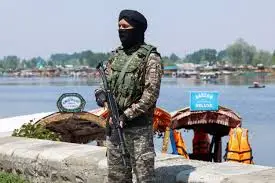India, Pakistan DGMOs likely to exchange de-escalation plans today

India-Pakistan DGMOs to Share Plans for Border De-escalation
On May 14, 2025, the military commanders of India and Pakistan plan to exchange proposals aimed at easing tensions along the Line of Control (LoC). The Director Generals of Military Operations (DGMOs) from both nations have held several discussions in recent days. These talks are part of a broader effort to reduce hostilities that spiked after an April attack in Kashmir.
Background: Rising Tensions and a Ceasefire
Tensions rose sharply in April following a deadly terrorist attack in Indian-administered Kashmir. In response, both armies increased their presence along the LoC. After days of military and diplomatic pressure, India and Pakistan agreed to a ceasefire on May 10. The United States played a key role in facilitating this agreement.
Focus of DGMO Talks
Lt Gen Rajiv Ghai of India and Maj Gen Kashif Abdullah of Pakistan have led recent conversations. Their primary goal is to prevent any new aggressive moves along the border. They also discussed steps to pull back troops from forward positions. Both sides signaled a willingness to reduce the chances of conflict by coordinating withdrawal efforts.
What the De-escalation Plan Includes
Officials expect both countries to share formal de-escalation proposals today. These plans likely involve the withdrawal of troops and heavy equipment to pre-April locations. The goal is to create a buffer and reduce the risk of accidental clashes. This effort could mark a turning point in a region that has seen repeated flare-ups.
Ongoing Diplomatic Strain
Even as military talks continue, diplomatic tensions persist. India recently expelled a Pakistani diplomat, citing unacceptable conduct. Pakistan, while backing the ceasefire, warned it would respond strongly to any future aggression. These actions show that trust remains fragile between the two neighbors.
Looking Ahead: Will Peace Hold?
The success of these plans depends on continued communication and transparency. Any misstep could reverse progress and trigger new conflict. For now, both countries appear committed to stepping back from the brink. Observers hope these steps lead to long-term peace in one of the world’s most militarized regions.






